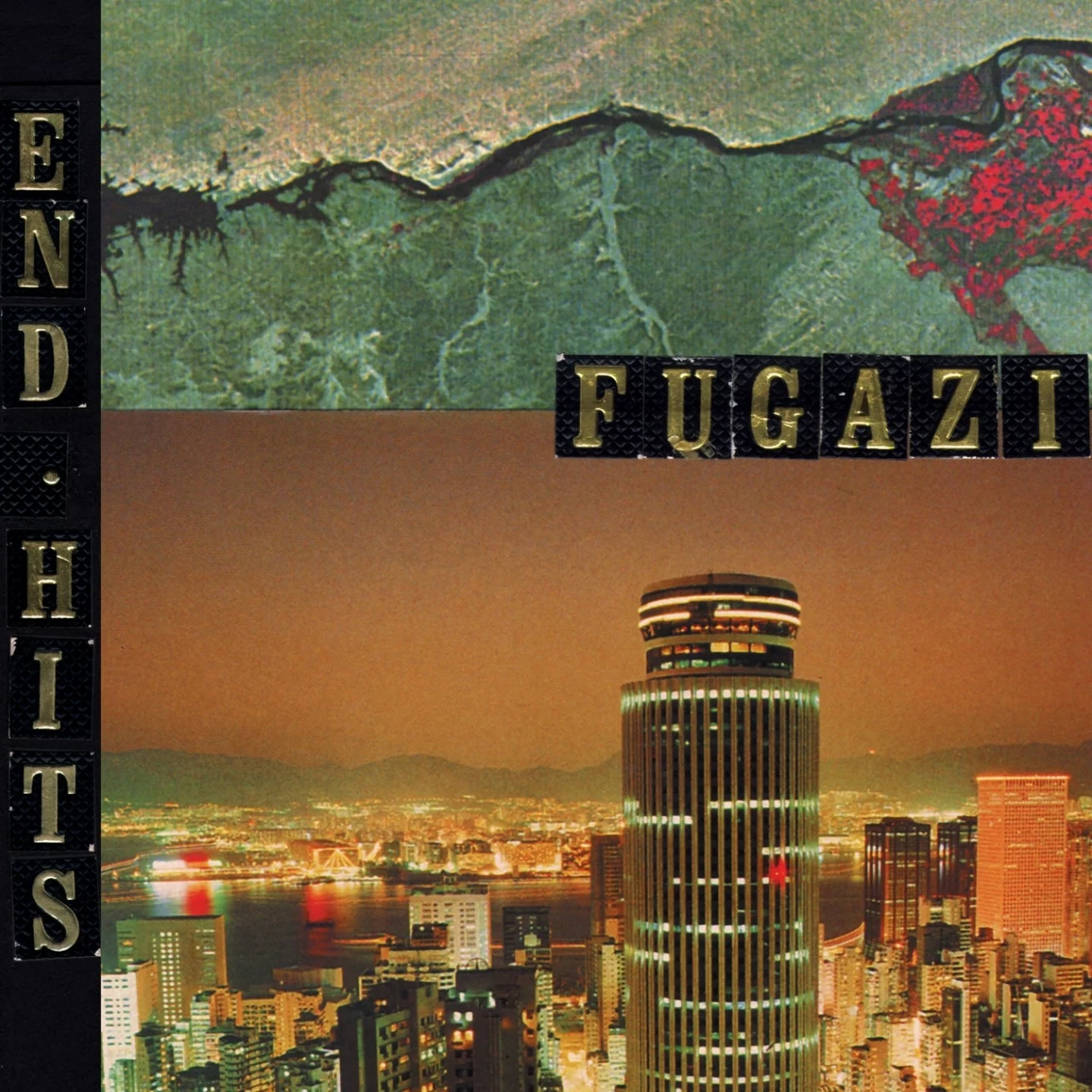Note: This article is meant to be a comprehensive exploration of the band Fugazi and their impact on the music industry. For quick navigation, you can use the table of contents below.
Table of Contents
- Introduction
- History and Development
- Type of Music
- Key Personnel
- Essential Albums
- Essential Tracks
- Discography
- Legacy
- Significant Reviews
Introduction
In the realm of punk rock and alternative music, few bands have left as indelible a mark as Fugazi. Formed in the late 1980s, this Washington, D.C. quartet became synonymous with the post-hardcore punk movement, pioneering a unique sound that defied convention and pushed boundaries. In this article, we will delve deep into the history, music, key personnel, essential albums, tracks, discography, legacy, and significant reviews of Fugazi.
History and Development
The story of Fugazi begins in 1986 when two influential figures in the D.C. punk scene, Ian MacKaye (vocals and guitar) and Guy Picciotto (vocals and guitar), joined forces. MacKaye had previously fronted the legendary hardcore punk band Minor Threat, while Picciotto had played with the influential Rites of Spring. They were later joined by Joe Lally (bass) and Brendan Canty (drums), forming what would become the core lineup of Fugazi.
Fugazi’s approach to music was characterized by a fierce DIY (Do It Yourself) ethos. This meant controlling every aspect of their career, from producing their records to booking their own tours. It was a rejection of the mainstream music industry and a commitment to remaining true to their artistic vision.
Type of Music
Fugazi’s music is often classified as post-hardcore punk, a genre that emerged in the wake of hardcore punk’s initial explosion. What set them apart was their willingness to incorporate diverse musical influences into their sound. While they retained the intensity and energy of punk, they blended it with elements of dub, reggae, and even avant-garde experimentation.
The band’s music was characterized by intricate guitar work, unconventional song structures, and thought-provoking lyrics. MacKaye and Picciotto’s dual vocals added depth and dimension to their songs, with their passionate delivery resonating with listeners on a visceral level.
Key Personnel
Ian MacKaye
Ian MacKaye, a central figure in the D.C. punk scene, played a pivotal role in shaping Fugazi’s ethos. His distinct, throaty vocals and aggressive guitar playing defined the band’s sound. His commitment to the DIY movement and punk ethics made him an iconic figure in the punk world.
Guy Picciotto
Guy Picciotto brought his own unique vocal style and guitar skills to Fugazi. His emotive singing and inventive guitar playing complemented MacKaye’s contributions, adding depth and diversity to the band’s music.
Joe Lally
Joe Lally’s bass playing provided the rhythmic backbone for Fugazi’s songs. His steady, pulsating basslines anchored the band’s sound, allowing for the exploration of more experimental elements.
Brendan Canty
Brendan Canty’s drumming was a driving force behind Fugazi’s music. His precise and dynamic rhythms added an essential layer to the band’s sonic landscape.
Essential Albums
Fugazi released a series of critically acclaimed albums during their career. These albums showcased their evolution as a band and their ability to push boundaries. Here are some essential Fugazi albums:
1. “Repeater” (1990)
“Repeater” is often considered Fugazi’s quintessential album. It’s a sonic powerhouse that blends furious punk energy with intricate guitar work and socially conscious lyrics. Tracks like “Turnover” and the title track “Repeater” remain fan favorites to this day.

2. “In on the Kill Taker” (1993)
“In on the Kill Taker” showcased the band’s willingness to experiment with their sound. It features a more dissonant and raw approach, with tracks like “Facet Squared” and “Smallpox Champion” pushing the boundaries of punk rock.
3. “Red Medicine” (1995)
“Red Medicine” marked another evolution in Fugazi’s sound. This album introduced elements of noise and psychedelia, creating a sonic collage that defied easy categorization. Tracks like “Do You Like Me” and “Bed for the Scraping” are prime examples of their experimentation.
4. “The Argument” (2001)
“The Argument” stands as Fugazi’s final studio album. It’s a masterpiece that showcases their maturity as musicians. With tracks like “Cashout” and “Ex-Spectator,” the band explored new musical territory while retaining their signature intensity.

Essential Tracks
Fugazi’s discography is a treasure trove of remarkable tracks. Here are some essential Fugazi songs that capture the essence of their music:
- “Waiting Room” – A high-energy anthem that remains one of Fugazi’s most iconic songs.
- “Suggestion” – Known for its powerful and provocative lyrics, this song tackles issues of consent and sexual assault.
- “Epic Problem” – A perfect example of the band’s ability to combine catchy melodies with thought-provoking lyrics.
- “Five Corporations” – A politically charged track that criticizes corporate greed and its impact on society.
- “Steady Diet” – The title track from the “Steady Diet of Nothing” album, showcasing the band’s evolution in sound.
Discography
Fugazi’s discography is a testament to their consistency and creativity. Here’s a list of their studio albums and EPs:
- “13 Songs” (1989)
- “Repeater” (1990)
- “Steady Diet of Nothing” (1991)
- “In on the Kill Taker” (1993)
- “Red Medicine” (1995)
- “End Hits” (1998)
- “The Argument” (2001)
In addition to their studio albums, Fugazi released several EPs and live recordings, further cementing their status as a prolific and influential band.
Legacy
Fugazi’s legacy extends far beyond their music. They set a precedent for independent musicians and bands, showing that it was possible to create meaningful and innovative art on their own terms. Their DIY approach and commitment to keeping ticket prices low for fans made them trailblazers in the music industry.
Their influence can be heard in countless bands that followed in their footsteps, from post-hardcore acts like At the Drive-In to alternative rock bands like Radiohead. Fugazi’s impact on the punk and indie scenes is immeasurable, and their dedication to social and political issues continues to inspire artists today.

Significant Reviews
1. “Repeater” – Pitchfork (9.5/10)
Pitchfork hailed “Repeater” as a landmark punk album, praising its intensity, lyrical depth, and the band’s ability to merge punk with avant-garde elements.
2. “The Argument” – Rolling Stone (4.5/5)
Rolling Stone lauded “The Argument” as a bold and experimental departure from Fugazi’s earlier work, applauding their musical growth and maturity.
3. Overall Impact – NME (5/5)
NME published an article celebrating Fugazi’s legacy, emphasizing their commitment to independence and their lasting influence on the music industry.
Similar Bands
While Fugazi’s unique blend of post-hardcore punk, experimental sound, and DIY ethos makes them a standout act, there are several bands that share certain musical characteristics or ideological similarities. If you’re a fan of Fugazi, you might also enjoy exploring the following bands:
- Shellac: Featuring Steve Albini, known for his distinctive production style, Shellac creates raw and angular post-hardcore music with thought-provoking lyrics.
- At the Drive-In: This Texan band combines elements of punk, post-hardcore, and alternative rock, producing energetic and politically charged music reminiscent of Fugazi’s intensity.
- Quicksand: Quicksand’s post-hardcore sound, characterized by heavy riffing and emotional depth, aligns with Fugazi’s approach to music.
- Drive Like Jehu: Known for their complex and dynamic song structures, Drive Like Jehu’s post-hardcore sound has parallels with Fugazi’s musical exploration.
- Sonic Youth: While not a punk band per se, Sonic Youth’s experimental approach to rock and their willingness to push boundaries may appeal to Fugazi fans.
- Jawbox: With intricate guitar work and powerful vocals, Jawbox creates music that blends post-hardcore and alternative rock, offering a sonic experience akin to Fugazi.
- Sleater-Kinney: This all-female punk rock band shares Fugazi’s passion for activism and produces music with feminist themes and a punk sensibility.
- Unwound: Unwound’s dissonant and intense post-hardcore music often delves into socio-political themes, making them a band worth exploring for Fugazi enthusiasts.
- Refused: Known for their album “The Shape of Punk to Come,” Refused combines punk, hardcore, and experimental elements, similar to Fugazi’s genre-blurring style.
- Nation of Ulysses: Featuring Ian Svenonius, who later formed The Make-Up, this band embraced a punk ethos and produced music that was both musically and politically charged.
These bands may not replicate Fugazi’s exact sound but share certain qualities that resonate with Fugazi fans. Exploring their discographies can lead to the discovery of new and exciting music that captures the spirit of post-hardcore punk and independent creativity.
Fugazi
In conclusion, Fugazi remains an enduring symbol of punk rock’s transformative power. Their music, ethics, and uncompromising approach to artistry continue to inspire musicians and fans alike. As we revisit their discography and reflect on their legacy, Fugazi’s impact on the world of music is undeniable, and their story is one of artistic integrity and innovation.
External Links: Pitchfork Review, Rolling Stone Review, NME Article

